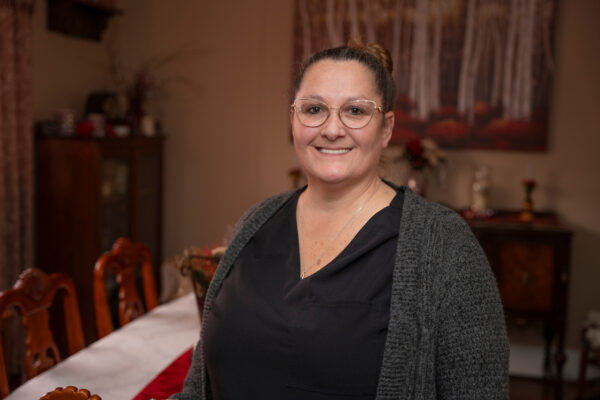When seniors stop eating properly, it’s one of the most frustrating problems families face. You visit and see barely touched plates, cupboards full of untouched food, and weight loss that’s impossible to ignore. The worry keeps you up at night – what happens if they just stop eating altogether?
The truth is, appetite loss in elderly adults is incredibly common, but that doesn’t make it any less scary when it’s happening to someone you love. Most families try the obvious things first: buying their favorite foods, cooking elaborate meals, and even bribing them with dessert. When none of that works, panic sets in.
Here’s what nobody tells you upfront – finding the right appetite stimulant for elderly loved ones isn’t about forcing them to eat more. It’s about understanding why they stopped wanting food in the first place and working around those changes, not against them.
Getting older changes everything about how food tastes, smells and feels. Medications interfere with hunger signals. Social isolation makes eating alone feel pointless. Physical changes make chewing and swallowing harder. Depression steals the joy from things that used to bring pleasure, including meals.
Why Seniors Suddenly Stop Wanting to Eat

The reasons behind appetite loss are usually more complicated than families realize. Sure, some medications suppress appetite – that’s the easy answer doctors give. But there’s often a perfect storm of factors happening at the same time.
Taste buds change dramatically with age. Foods that were delicious for decades suddenly taste like nothing. The sense of smell weakens, which affects taste even more. Everything becomes bland and uninteresting. Meanwhile, the stomach actually shrinks, so smaller amounts of food create a feeling of fullness faster than before.
Then there’s the emotional side that gets overlooked. Many seniors used to cook for families, host dinner parties, or at least share meals with a spouse. When eating becomes a solitary activity, it loses its meaning. Food was never just about nutrition – it was about connection, tradition, and comfort. Take away the social aspect, and meals become just another chore.
Physical challenges pile on top of everything else. Arthritis makes opening jars impossible. Dental problems make chewing painful. Swallowing becomes scary if there have been any choking incidents. Mobility issues make grocery shopping difficult, leaving seniors dependent on whatever’s available at home.
What Works as an Appetite Stimulant for Elderly Adults

The solutions that actually work often surprise families because they’re not what you’d expect. Focus on five or six smaller eating opportunities throughout the day. A bowl of soup at 2 PM doesn’t feel overwhelming the way a full dinner plate does.
Smell is everything when taste buds aren’t working properly. Warming food before serving it, even if it’s already warm, releases aromas that can trigger appetite. Cooking with stronger herbs and spices helps too – garlic, rosemary, cinnamon, and ginger. Don’t worry about overseasoning; what seems strong to you might be just right for someone with diminished taste.
The social element can’t be ignored. Seniors eat more when they have company, even if it’s just someone sitting nearby with a cup of coffee. Phone calls during mealtime help too. Some families use video calls so their elderly parent doesn’t eat alone, which works better than you’d think.
Movement before meals helps wake up appetite signals. This doesn’t mean joining a gym – just a short walk around the house or some gentle stretching can make a difference. Even getting up and moving to set the table or prepare a snack can trigger hunger.
How to Increase Appetite in Elderly Loved Ones Without Causing Stress

The biggest mistake families make is turning every meal into a negotiation. Nagging about eating doesn’t work – it just makes everyone miserable and turns food into a source of conflict instead of comfort.
Stop worrying about “perfect” nutrition for now. When someone’s barely eating, calories matter more than whether those calories come from vegetables or ice cream. Yes, ice cream for breakfast is fine if that’s what gets consumed. You can worry about balanced nutrition once regular eating habits return.
Make eating easier, not just healthier. Pre-cut vegetables, rotisserie chicken, and even frozen dinners that actually get eaten are better than elaborate home-cooked meals that sit untouched. The goal is consumption.
Temperature preferences become important and often change from day to day. Some seniors go through phases where they only want hot foods, then switch to preferring everything cold. Stock both options and don’t try to figure out the logic behind it.
Presentation matters more than expected. Food looks more appealing on smaller plates because portions don’t seem overwhelming. Adding color helps too – berries on oatmeal, a slice of tomato on a sandwich, anything to make the plate look less beige and boring.
Meals for Elderly Parents That Actually Get Eaten
Forget everything you think you know about what meals for elderly parents should look like. The elaborate Sunday dinners they used to love might be too much now. Simple foods often work better: soup and crackers, scrambled eggs with cheese, and smoothies packed with nutrition.
The texture becomes surprisingly important. Some days, seniors want everything soft and easy to chew. On other days, they crave something crunchy. Having both options available prevents the frustration of offering the wrong texture at the wrong time.
Finger foods eliminate the struggle with utensils that might not feel steady anymore. Cheese and crackers, small sandwiches, grapes, cherry tomatoes – foods that can be eaten with hands reduce stress and make eating more enjoyable.
Comfort foods often work better than “senior-appropriate” meals. Mac and cheese, grilled cheese and tomato soup, meatloaf – familiar foods trigger positive memories and emotions that can stimulate appetite in ways that perfectly balanced senior meals don’t.
Easy Meals for Elderly to Reheat When You Can’t Be There
Most families can’t provide fresh meals three times a day, which is where easy meals for elderly to reheat become essential. The trick is finding foods that taste good after being stored and reheated, not just foods that are easy to store.
Soup-based meals are the obvious choice because they actually improve with time. Chicken and rice soup, vegetable beef soup, and even simple chicken broth with noodles work well. They freeze in individual portions and provide hydration along with nutrition.
Casseroles with sauces reheat better than dry foods. The sauce prevents everything from drying out and keeps flavors intact. Mac and cheese, tuna noodle casserole, enchiladas – comfort foods that remind seniors of family meals they enjoyed.
Smoothies can be made in batches and frozen in individual containers. They’re an easy way to pack in protein, fruits, vegetables, and calories when solid food feels like too much work. Thaw overnight and they’re ready for breakfast or a snack.
What doesn’t work: anything that’s supposed to be crispy. Reheated fried foods, pizza, or breaded items turn soggy and unappetizing. Focus on foods that are meant to be soft and saucy from the start.
| Reheats Well | Doesn’t Reheat Well | Why |
| Soups and stews | Fried or crispy foods | Maintains moisture and flavor |
| Pasta with sauce | Plain grilled meats | Sauce prevents drying out |
| Casseroles | Fresh salads | Ingredients blend well together |
| Smoothies (frozen) | Crusty bread | Texture holds up after storage |
When DIY Solutions Aren’t Enough
Sometimes, despite everyone’s best efforts, the problem is bigger than what families can handle alone. Weight loss of more than 10 pounds without trying, eating less than half the normal amount for several weeks, or signs of weakness and confusion are red flags that require professional help.
Medication reviews can reveal appetite-suppressing side effects that can be addressed with adjustments or timing changes. Depression screening is important too, since mood changes often show up as appetite loss before other symptoms become obvious.
Professional nutritionists who specialize in geriatric care understand the unique challenges seniors face. They can develop realistic eating plans that work with changing preferences and physical limitations rather than fighting against them.
Sometimes the issue isn’t just appetite, but the overwhelming nature of meal planning, shopping, and preparation. Professional caregivers can help with these tasks while providing the social interaction that makes eating more enjoyable.
Realistic Expectations and Long-Term Success
The most effective appetite stimulant for elderly individuals is usually a combination of small changes applied consistently over time. Don’t expect dramatic improvements overnight, and don’t try to fix everything at once. Both approaches lead to frustration for everyone involved.
Focus on what works rather than what should work. If your parent will eat ice cream but won’t touch salad, start with ice cream. If they prefer breakfast foods at dinner time, serve breakfast for dinner. Fighting against their preferences wastes energy that could be spent on finding creative solutions.
The social aspect of eating often makes the biggest difference. Even small gestures like calling during mealtime or eating together once a week can improve appetite more than any specific food or supplement.
Accept that taste preferences really do change with age. Foods they loved for decades might genuinely not taste good anymore. This isn’t stubbornness or being difficult – it’s a real physiological change that requires adaptation, not arguments.
Professional Support When Family Efforts Aren’t Enough
When appetite loss becomes a serious concern despite your best efforts, professional help can make all the difference. Many families struggle alone with these challenges when experienced support is available to help both seniors and their loved ones navigate this difficult situation.
Firefly home care agency caregivers understand that appetite issues in seniors involve much more than just food. We recognize the emotional, social, and practical factors that affect eating habits and work with families to develop personalized approaches that respect individual preferences while ensuring proper nutrition.
Our team provides practical support like meal preparation and companionship during meals, but we also address the underlying issues that contribute to appetite loss. We understand how isolating it can be to eat alone every day, and we know how to encourage healthy eating without creating conflict or stress around food.
Contact Firefly Home Care today to discuss how professional support can help your family find solutions that work for your specific situation.






























